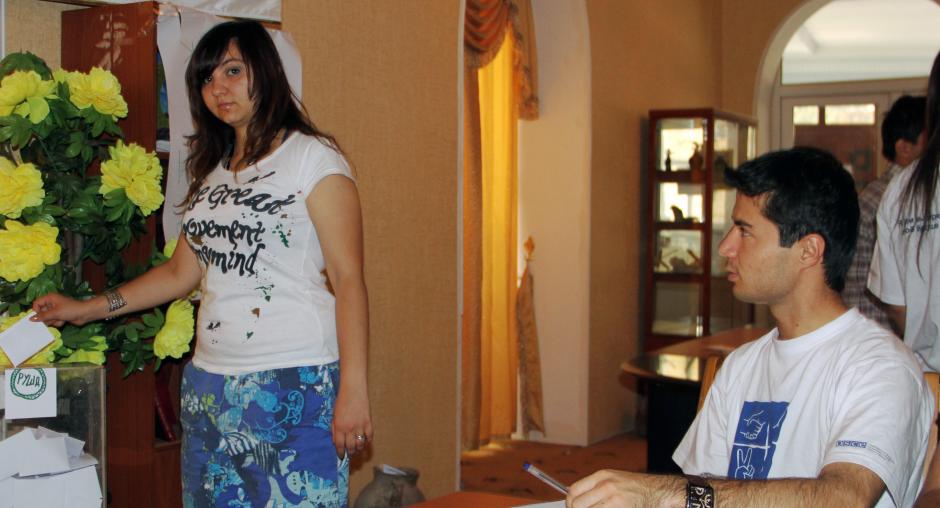Students at OSCE workshop propose ways to increase participation of young people in political life in Tajikistan

VARZOB, Tajikistan, 20 July 2011 - Some 60 university students from across Tajikistan presented recommendations on how to increase the participation of young women and men in public and political life today at the conclusion of a five-day workshop organized by the OSCE Office in Tajikistan on "Youth, Gender and Democratic Standards for Elections”.
The recommendations include greater engagement on the part of political parties with young voters, more civic education and non-partisan voter education outreach, mainstreaming gender concerns into party programmes and greater opportunities for young people to participate as domestic and international elections observers.
The workshops devoted special attention to gender concerns in politics. The students met representatives of the ad-hoc working group that includes female representatives of all registered political parties in Tajikistan, including Dilbar Solieva from the Socialist Party of Tajikistan and Farangis Narzieva from the Agrarian Party of Tajikistan. They also learned about gender mainstreaming from Alla Kuvatova, the Executive Director of the Association of NGOs on Gender Equality and Prevention of Violence Against Women.
“Young people represent the biggest part of the electorate of Tajikistan and at the same they are the least educated in political issues. That is why young people need special educational and engagement programmes aimed at expanding their participation in political decision-making processes,” said Timur Yunusov, youth policy expert and core trainer at the workshop.
During the five days of intensive training and debate sessions, participants learned about electoral systems, domestic laws, international standards for free and fair elections and the OSCE’s 1990 Copenhagen Document. They conducted a model election process that included roles for political parties and their campaigns, media, international and domestic election observers and an election commission.
"Every time we conduct political participation workshops with students, we see that they are eager to engage," said Barbara Davis, the Head of the Human Dimension Department at the OSCE Office in Tajikistan. "Young people want to play a more active role in the political process - as voters, political party activists, observers and candidates."
